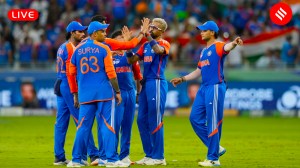There are those who argue that the securities scam investigation ought to be wound up and everybody involved should move on. True, but the winding up can happen only if a quick and efficient way of settling disputes and pinning responsibility is formulated. Justice S. N. Variava’s hard hitting judgement of December 24, exposed the lies, exaggeration and false claims of Standard Chartered Bank (SCB). The judge has reiterated what the Joint Parliamentary Committee (JPC) report and the RBI had already documented that SCB’s treasury was run by stock broker Hiten Dalal, but the delay in reaching this conclusion only underlines the need for a re-examination.
For six years SCB could continue to claim that it was cheated by Hiten Dalal to the tune of Rs 1,233 crore until Justice Variava threw out its claims of nearly Rs 800 crore (refer The Indian Express, January 14) because it could not prove the losses.

Truth, as Justice Variava has written, “has a habit of creeping out”, and the relentless crossexamination of M.P. Rao forced it out. As the judge identifies, it’s a Catch-22 for the bank either the bank’s top management out of “greed” for higher profits, wilfully flouted RBI rules and tossed out prudent banking practices by entering into an arrangement with Hiten Dalal, or, it was “the worst run and most negligent” bank, and the latter would be “ground for closing down such a bank”.
Story continues below this ad
In fact, the judge has thrown out the banks’ attempt to do what is a standard practice abroad that is, whenever caught breaking rules, smoothly convert the issue into one of employee fraud. A few junior officials are sacked and the institution remains untouched except maybe for the payment of penalties. Justice Variava has ruled that it is impossible to believe that dealers by themselves had flouted limits and did anything without the blessings of top management.
SCB will surely appeal against the judgement and the case may go on for several more years. But the RBI needs to step in and re-examine severalissues. The bank has done enough damage already and it’s time the government puts an end to the mischief by reopening the audit trial. Lets look at specific examples.
Since May 1992, every market player has insisted that SCB’s loss claims are grossly exaggerated. The JPC as well as the Janakiraman Committee indicted the bank, but it was still seen as the injured party. Six years later, Justice Variava risen above the anti-broker bias of the other committees and come up with the truth — that SCB cannot prove three-fourth of the claimed losses.
SCB’s foreign insurers (a SCB group insurance company) too did not buy its claims. Under pressure from re-insurers, a team from London made several trips to India last year to ferret out information and identify witnesses. The case was to go into trial in October 1998, but in September the parties opted for a settlement instead. A part of deal is complete secrecy; but surely the RBI surely needs ask for details. After all most of the bank’s business isnow in India and Asia.
Bank of Karad and Metropolitan Co-operative Bank were closed down, mainly on account of SCB’s allegations and thousands of depositors including mathadi workers lost their money. If SCB is now hard pressed to prove actual losses, then the decision on closing down those banks also seems doubtful. Who will compensate depositors for their losses?
Mount Banking Corporation of London was also allegedly closed down by the UK government on account of SCB’s charges that vast amounts of money was siphoned out of the country into that bank. Since no wrong doing and transfer of funds from the country could be proved, the NRI-run bank has now filed a defamation suit against SCB in London.
It is time to stop SCB and other banks from blocking up the already burdened legal system through claims which may eventually be proved false. The government has to find a way to settle the commercial aspects of the scam by forcing out the truth, and leave the special court to try the criminalcases. The custodian cannot distribute assets seized by him until the cases are finally over and recovery of money a decade after expensive litigation is meaningless, especially because CBI officials, who often conduct their interrogation from the offices of foreign banks, are unlikely to build a meaningful case and present the correct evidence.
Finally, the RBI and the finance ministry needs to open up an investigation into what one would call “orphaned bonds”. If SCB and other banks are unable to prove several transactions, its because several of these were fictitious and simply cooked up after the scam broke out. In fact, most banks issued false bankers receipts (BRs) against UTI units and took some of the less glamorous public sector bonds as security against these. These bonds have often been found tumbling out of cupboards, as in case of Andhra Bank Financial Services and their ownership never clearly established. It’s still not too late to establish an audit trail. A simply way would be forceall the bonds to be compulsorily dematerialised. It would flush out a large chunk of the scam money . In fact, this may be a fit case for granting some immunity/amnesty for declaring true ownership.
































